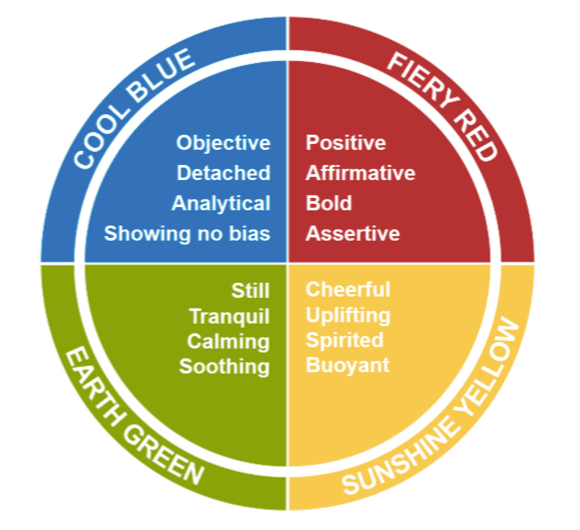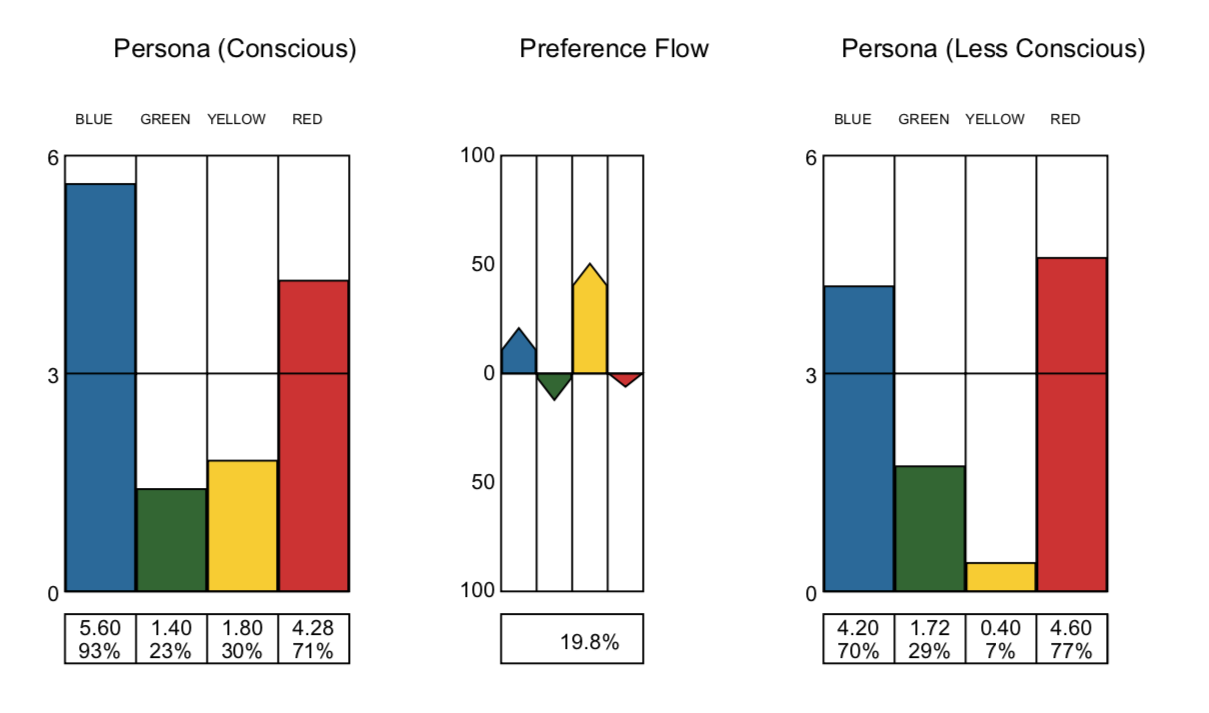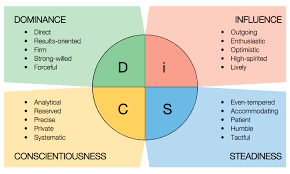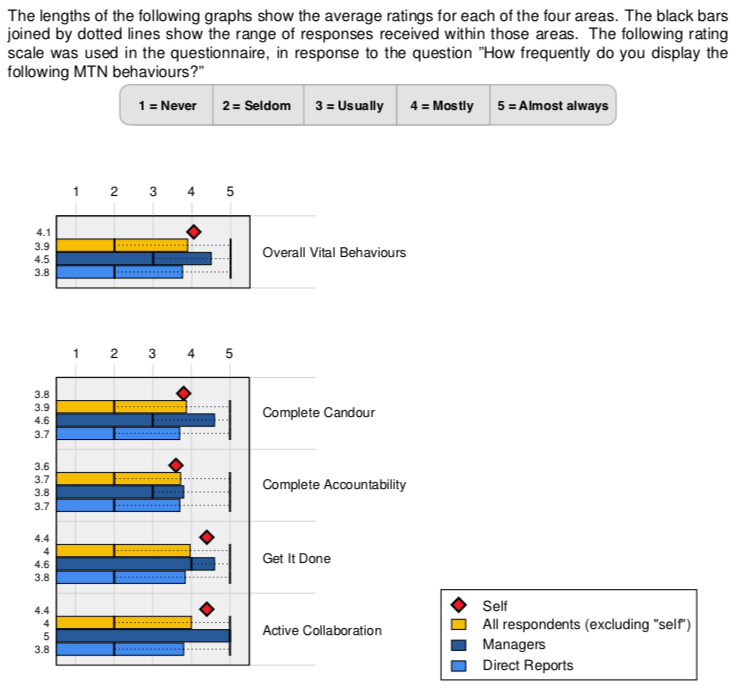Flask on AWS Serverless: A learning journey - Part 2
About 3 years ago I learnt some basic Python, which I've used almost exclusively to
Personality
This is a brave post, by opening up the details of my personality, I am hoping others will know what makes me tick, what drives me, what scares me, and what makes me do the things I do. This essentially answers the questions that interviews try to solve for culture and personality fit.
Most of the challenges we have in life, work and business come down to personality issues, and how we choose to deal with differences in how people do things. This applies to marriage, friendship, and business, where we interact with other people.
In the business world, interviews test for technical ability, culture and personality fit. You need people who have the skills to the job, but most importantly, have the right personality to fit into the team, have the right attitude, and can work around the conflict that inevtiably will occur, because we are humans, right?
In order to be able to do deal with differences in people, you need to know yourself, and know how you typically react. We are born with certain traits, some are gained through life experiences that have shaped us, and some are learned. One of the real benefits of knowing yourself and those around you is that you know how to get the most out of certain situations, and you can actively change your way of interaction to get the most out of the situation. E.g one of our previous CIOs, was, according to DISC, a D (Dominant, Direct) and was not interested in the details, just the highlights and key points. So if you wanted to communicate some critical information to him, and wanted his assistance to make a decision, you do not want to send a long-winded email with all the juciy details, rather a concise one, with the key points right at the top, and your suggestion on how to proceed. That way he will see whats important, which will assist him to make the decision. If he received the long email, he will read the first few lines, skip to the bottom, and you will miss your chance to make an impact, probably resulting in him making the wrong decision.
During interviews, companies ask leading questions to be able to pick up on the traits they are looking for. One particular company I worked at did Enneagrams, and made a hire/no-hire decision based on what traits the person had, and what the existing team had. So if the team was mainly full of Type 3s, they either wanted another Type 3 to gel with the team, or wanted someone different to bring a different perspective.
I have been lucky to have begun to learn myself, to pick up my personality traits, and know what things make me react in certain ways. This has been done through various leadership courses, mentorships, team-building, or some personal work I had done.
There are many personality tests, with the common one being MBTI or similiar ones. One of the many dangers of these is that they may become self-fullilling - i.e. you may read too much into what the results are, and you use that as evidence of why you are a particular way.
Before I get into the details, let me quickly list my personality types:
Let me now list the details of the courses I did, and how we did these tests.
In April 2020, I signed up for a Modified Career Path Appreciation, an interview methodology designed to identify an individual’s capability to work at predetermined levels of complexity. It consisted of an online assessment, consisting of different types of questions, where you have to provide motivation of why you chose a particular option, as well as an interview with a qualified
practitioner
to discuss your answers and career aspirations. This was the feedback he gave me at the end of the interview:
During September 2019, our department completed the online assessment, and then went away for a day course, to review the Discovery Profile. I found it to be quite similiar to the DISC profiles.

My Colour Energy was Cool Blue: Showing no bias, Objective, Detached
My Discovery Report is available.

Key Strengths:
In 2016, I attended company training for Managers and Senior Managers, that was called LEAP: Leading People. It was a combination of different Ken Blanchard courses:
During this 5 day off-site course, we started to learn more about ourselves, what influences us, and what influences the way we manage people and teams.
We spent a lot of time on the DISC test, making sure we understand it. The result was that my primary DISCposition was a C, and my secondary an s.

My Visible/External and Inner/Internal self results were both consistent, which means I react the same, both under normal and stressfull conditions. Here are snippets from the report:
You demonstrate a very reserved, inward-acting approach that is driven by your need for indirect control through self-directed processes and procedures. You try to perfect those tasks in which you get involved. Your need to do things correctly makes you limit the number of commitments and working relationships that you undertake at any one time or, perhaps, at all. You comply with others when it is needed to minimize conflict or other problems that might interfere with the objectives and standards you want to achieve.
You are especially comfortable in roles that involve primarily planning, structuring, and evaluating and secondarily implementing work or activities.
You demonstrate a very reserved, introverted approach to those around you, which is powered by your need for control and for using specific processes and procedures. You try to be as perfect as you can in those tasks in which you get involved. Your need to do things correctly limits the number of commitments and working relationships you undertake at any one time. You comply with others when it is needed to minimize conflict or other problems that might interfere with the objectives or standards you want to achieve. Your talents fit well with roles that involve primarily planning, structuring, and evaluating and, secondarily, implementing work activities and projects.
You may become known as a perfectionist in whatever you decide is important to you. You believe that doing things right—using your standards of quality—is the only acceptable way of doing things. Your approach assumes that problems can be minimized or avoided altogether by meeting or exceeding a clearly defined and limited set of expectations for both the tasks and the relationships. Once you take on a set of expectations or activities, you try to do them the best you can and try to perfect the outcomes you promised, either to others or to yourself.
When circumstances are positive and nonstressful, you are energized by your desire to attain predictable accomplishments or outcomes in a steady, logical manner. In order to achieve this, you typically follow a personal routine of key processes, procedures, and details that logically yield the desired end-results
In LEARNING SITUATIONS you are quite versatile. You can work with small amounts of concrete information or data, or with “big picture,” abstract concepts
The strengths in your interpersonal relationships are tact, diplomacy, and the capacity to be of service at times that suit you. You tend to keep a quiet distance from most people as you try to avoid entanglements, conflicts, and ambiguous emotional experiences. The continuing, lasting work relationships you want are based on others’ capacity to think logically, follow procedures, and produce quality work.
We also did work on Leader Behaviour Analysis, which shows your flexibility to use different leadership styles based on the situation, and leadership style effectiveness. With a score of 26, it means I use more than 2 or 3 styles, and a effectiveness score of 55 suggests I match my leadership style to the individual’s development needs.
Enneagram categorieses personalities into 9 types. My results show the highest scores
The committed, security-oriented type. Sixes are reliable, hard-working, responsible, and trustworthy. Excellent "troubleshooters," they foresee problems and foster cooperation, but can also become defensive, evasive, and anxious—running on stress while complaining about it. They can be cautious and indecisive, but also reactive, defiant and rebellious. They typically have problems with self-doubt and suspicion. At their Best: internally stable and self-reliant, courageously championing themselves and others.
And I scored highly in these other types:
This is one of the replies I got from a previous manager and mentor, when I shared the results with him:
I think the innovation teams included a lot of 7s in the past, 6 is popular amongst engineering and specialist roles. 1 is featuring increasingly in the organisation. I'm particularly impressed at your perseverance here. Keep at it
The main idea with enneagram is that some of our behaviours are dominant, we don’t really change that fundamental, however what does change over time is that we put more and more of the types to work in our lives, especially where the situation requires. The types are like a board of directors in our head, each of them needs to contribute where appropriate, where those contributors are strong, leverage them, where weak, improve them.
You got a 0 for the 2 (helper) - find a project where you can develop this role and behaviour. For the 6 take innovative work and make it implementable, which is what you do in your job, right? Which means you are relevant and should find that you remain relevant, as long as you leverage those behaviours.
I took a free self-assessment, with these results:
You have a deep and persistent intellect that tends to receive its impetus from hunches at the very edge of consciousness. More often than not, you tend to be brooding over some problem or possibility, attempting to encompass all possible and impossible views on it at the same time, and to weave them all into something greater. Hence you have it in you to be seminally creative by developing completely new perspectives on big questions that were commonly thought settled. As a person you are likely to be thought highly original, unusual, and insightful. However, you tend to lack the joy of living in the present, your mind always being somewhere in the future. Your most likely Jungian type is INTJ or INFJ.
At a recent 2 day team breakaway (April 2018), we completed the Inventory for Work Attitude & Motivation (iWAM) assessment, and then went through the results. It describes the basic characteristic of a persons attitude in terms of Motivation and Work Organisation Preferences. I like that the results focus on language to motivate me, so if I score how on it, then use that language to motivate be, but when I score lower, then dont use that language, as its likely to demotivate me.
Let me list some of them:
Category: Operating Factors
And items where you should not use these terms:
Category: The need for change
This is a quick test I took on the internet, so it was not facilitated. My results show I am a
ISTJ: Introversion Sensing Thinking Judgment
ISTJs are thorough, painstaking, systematic, hard-working, and careful with detail.
My Vital Behavious Report is available.
In November 2015, the company ran a 360 degree review, letting others that report to me, anonymously answer questions on my leadership style.
The graph shows your self-ratings compared to the ratings of you by others. By exploring the similarities and differences between self- and other- ratings you can identify your strengths and development areas on which you and your raters have similar or differing views, i.e. how balanced the views are in comparison to each other.
